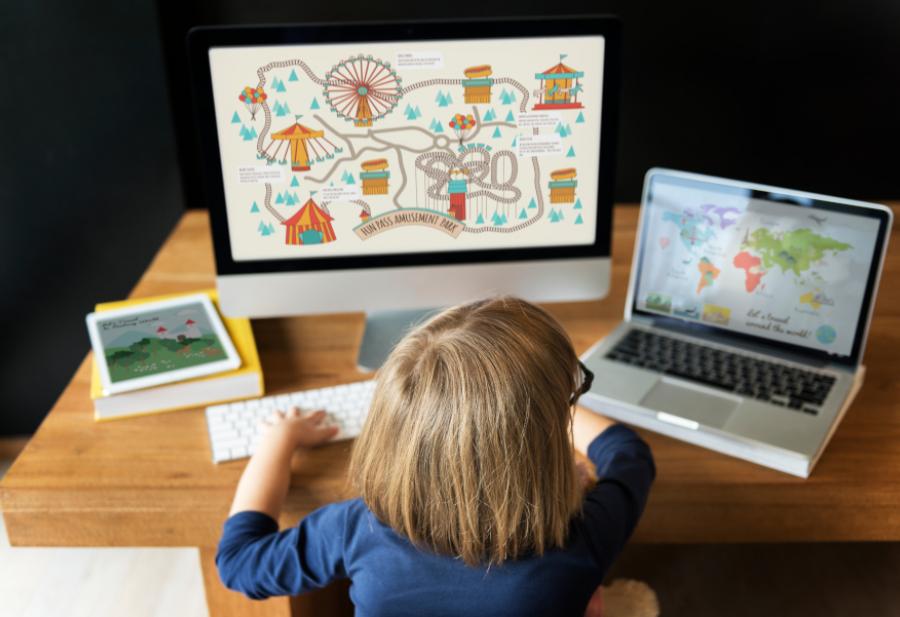Finding information isn't just clicking on the search button / Encontrar información no es solo darle al botón de buscar
-
0 comments
/futurium/en/file/blogdesinformacionjpgblog_desinformacion.jpg

[English]
It has never been so easy to get information about any issue that raises questions or curiosity. The Internet makes it easy for us and children are the first to take advantage of this utility on their devices. With just one click, they have thousands of contents at their fingertips.
Fake news also affects children and teenagers. They can reach them in the form of news, messages, images or videos, which are spread through their social networks, messaging applications or virtual communities. But they are not only political, there is also false information on other issues that may attract your attention, such as offers and discounts, or animals in danger.
Media literacy refers to this learning, which develops the necessary capacity to know how to access information, analyse it and create it in any medium. These skills are considered essential for children and adults to be able to understand and make informed decisions.
Encouraging children to reflect on what they read on the Internet is to motivate them to be critical, to be curious and to make decisions for themselves. In order to incorporate this task into the daily routine, INCIBE's Internet Segura for Kids has developed the educational resource “En la Red Infórmate con lupa” ("On the Net, Check information carefully”) that can be used in the classroom or as a practice for the whole family. In this resource, examples of hoaxes that we meet daily on the Internet are presented, and guidelines are given to analyse them. This content is rounded off by watching the video “Recognise fake news”, which summarises the clues for a diet of digital information free of false news.
When talking to children about fake news, we must consider:
- As well as using social networks, it is important to promote in minors the search for information in other sources that can provide them with different points of view and that allow them to corroborate the content.
- It is preferable to be by their side and accompany them while corroborating information, teaching them what they should look for in order to identify false content, the motivation behind the news or what values it conveys.
- It is always advisable to perform simple searches to check the veracity of references, and the existence of other related news in other media.
- They can also take advantage of the filtering functions of the results or the advanced search to further narrow down the contents that the search engine shows.
The full text of the article is available at (https://www.is4k.es/blog/encontrar-informacion-no-es-solo-darle-al-boton-de-buscar), and includes the following complementary contents: infographic (https://www.osi.es/sites/default/files/images/concienciacion/c4_pdf_rp_muevete_seguro_rrss.pdf) and video animation (https://youtu.be / SRFHgUX2sF0). All the content is available in Spanish.
[Spanish]
Nunca ha sido tan sencillo conseguir información acerca de cualquier cuestión que nos genere dudas o curiosidad. Internet nos lo pone fácil y los menores son los primeros en aprovechar esta utilidad en sus dispositivos. Con tan solo un clic tienen miles de contenidos a su alcance.
Las fake news también afectan a niños y adolescentes. Pueden llegar a ellos en forma de noticias, mensajes, imágenes o vídeos, que se difunden a través de sus redes sociales, aplicaciones de mensajería o comunidades virtuales. Pero no son solo de ámbito político, también existe información falsa sobre otros temas que pueden atraer su atención, como ofertas y descuentos, o animales en peligro.
La alfabetización mediática se refiere a este aprendizaje, que desarrolla la capacidad necesaria para saber cómo acceder a la información, analizarla y crearla en cualquier medio. Estas habilidades se consideran esenciales para que niños y adultos sean capaces de comprender y tomar decisiones fundadas.
Animar a los menores a reflexionar sobre lo que leen en Internet, es motivarles a ser críticos, a tener curiosidad y a tomar decisiones por sí mismos. Para incorporar esta tarea en la rutina diaria, Internet Segura for Kids de INCIBE ha desarrollado el recurso educativo “En la Red Infórmate con lupa” que puede ser utilizado en el aula o como práctica para toda la familia. En este recurso, se plantean ejemplos de bulos que nos encontramos diariamente en Internet, y se dan pautas para analizarlos. Este contenido se completa con la visualización del vídeo “Reconoce fake news”, que resume las pistas para una dieta de información digital libre de noticias falsas.
A la hora de hablar a los menores de fake news, debemos tener en cuenta:
- Además de la utilización de las redes sociales, es importante promover en los menores la búsqueda de información en otras fuentes que les puedan aportar diferentes puntos de vista y que les permitan contrastar los contenidos.
- Es interesante estar a su lado y acompañarles mientras contrastan información, enseñándoles en qué deben fijarse para identificar un contenido falso, qué motivación hay detrás de una noticia o qué valores transmite.
- Siempre es recomendable realizar búsquedas sencillas para comprobar la veracidad de las referencias, y la existencia de otras noticias relacionadas en otros medios.
- Pueden aprovechar, además las funciones de filtrado de resultados o la búsqueda avanzada para acotar más los contenidos que muestra el buscador.
El texto completo del artículo está disponible en (https://www.is4k.es/blog/encontrar-informacion-no-es-solo-darle-al-boton-de-buscar), e incluye los siguientes contenidos complementarios: infografía (https://www.osi.es/sites/default/files/images/concienciacion/c4_pdf_rp_muevete_seguro_rrss.pdf) y videoanimación (https://youtu.be/SRFHgUX2sF0). Todos los contenidos están disponibles en español.
About INCIBE and IS4K
Internet Segura for Kids (IS4K) is the Safer Internet Centre for minors in Spain, working with the aim of providing a safe environment for young people in the use of internet and technologies.
IS4K is led and coordinated by the Spanish National Cybersecurity Institute (INCIBE) depending on the Secretariat of State for Digital Progress (SEAD), and is part of the pan-European INSAFE network of SICs within the Better Internet for Kids Programme of the European Commission.
/futurium/en/file/logosis4kjpglogos_is4k.jpg


